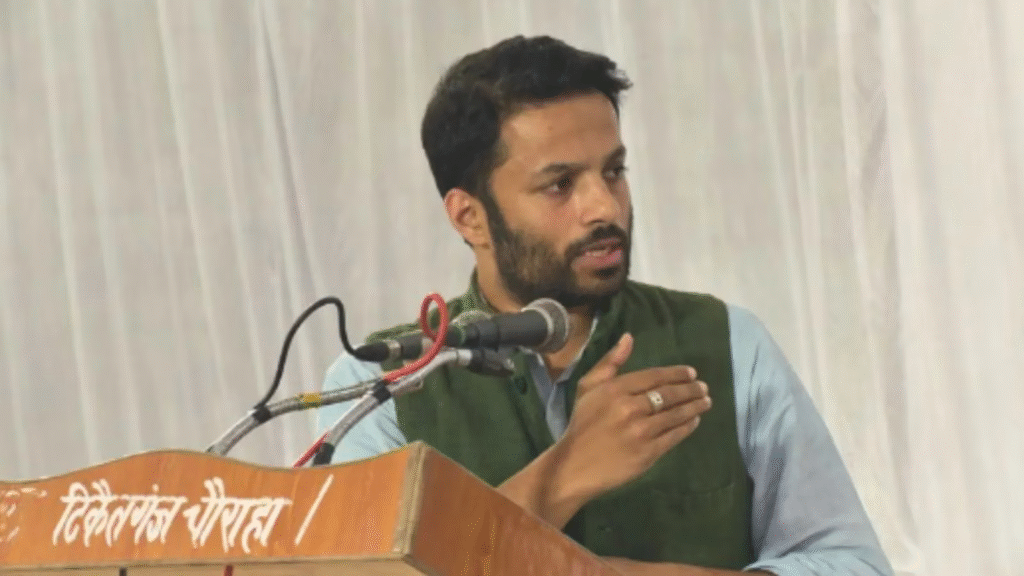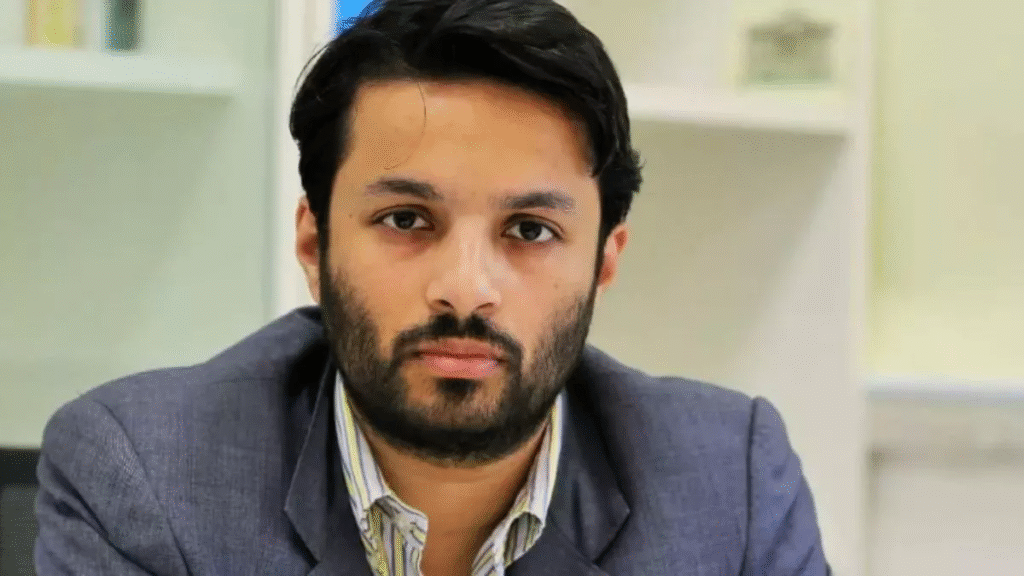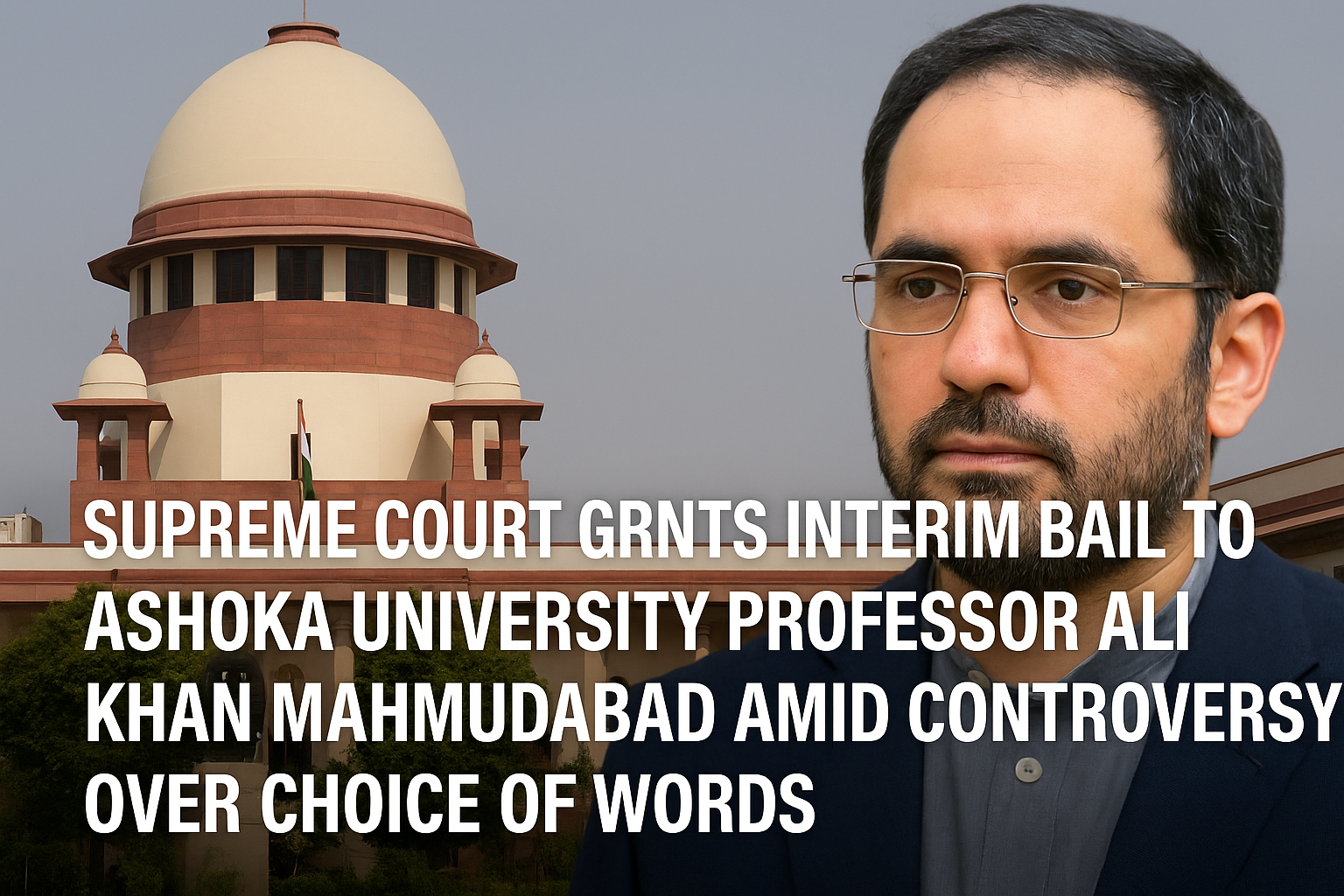
In a landmark decision that has captivated public attention across India, the Supreme Court recently granted interim bail to Professor Ali Khan Mahmudabad of Ashoka University. This development comes after a legal battle stemming from allegedly provocative remarks made by the professor, which led to his arrest and sparked widespread debate. While the court extended him temporary relief, it also strongly reprimanded Mahmudabad for his choice of words, underlining the responsibility that accompanies the freedom of expression, especially for public intellectuals and academicians.
The case is emblematic of the complex and evolving discourse surrounding freedom of speech in India — a constitutional right held sacred, yet bounded by reasonable restrictions designed to protect public order and communal harmony. Professor Mahmudabad’s situation has ignited a larger conversation about where the line should be drawn between protected speech and punishable offense, and the role of courts in safeguarding democratic values while maintaining social peace.
Background: Arrest and Allegations Against Professor Ali Khan Mahmudabad
Ali Khan Mahmudabad, a distinguished professor known for his scholarly contributions and vocal views on socio-political issues, became the subject of legal scrutiny after a complaint was lodged regarding remarks he had made that some found offensive or inflammatory. The exact details of the remarks remain partially confidential in court documents, but sources indicate that they were critical of certain communities and potentially capable of inciting unrest. The arrest sent shockwaves through academic and public circles, sparking polarized reactions.
Supporters of Mahmudabad argue that his arrest represents a disproportionate response to an exercise of free speech, cautioning against a trend of silencing dissent and intellectual critique. Critics contend that words have consequences, particularly when voiced by public figures, and that inflammatory language cannot be shielded behind the banner of freedom of expression. The legal proceedings following the arrest have become a touchstone for debates on balancing individual rights with societal interests.
The arrest also triggered a wave of media coverage and social media discourse. Hashtags supporting the professor trended on platforms like Twitter, while opposing groups called for strict action against speech that could exacerbate communal divisions. The polarized environment reflected India’s ongoing struggle to negotiate the boundaries of acceptable public discourse amid its diverse and sensitive social fabric.
Supreme Court’s Intervention: Granting Interim Bail and Reprimanding Language
The Supreme Court’s intervention was eagerly awaited by all stakeholders. After careful consideration, the apex court granted interim bail to Mahmudabad, a decision that provides temporary relief while the legal process continues. The court evaluated several factors in arriving at this verdict, including the presumption of innocence, the necessity of bail in preventing undue hardship, and the potential consequences of incarceration on the professor’s health and professional life.
However, the court’s order was far from a blanket endorsement of Mahmudabad’s conduct. The judges issued a stern rebuke concerning the professor’s choice of words. The court emphasized that freedom of speech, guaranteed under Article 19(1)(a) of the Indian Constitution, is not absolute. It carries inherent responsibilities and is subject to reasonable restrictions to maintain public order, decency, and morality. Speech that has the potential to incite hatred or disturb communal peace falls outside the protective ambit of free expression.
The court’s remarks underscored the delicate balance that must be maintained: protecting democratic freedoms on one hand while preventing speech that could cause societal harm on the other. The Supreme Court made clear that while Mahmudabad’s bail was granted on procedural grounds, it was imperative that the professor recognize the weight and impact of his words going forward.
The Legal Landscape of Free Speech in India: Contextualizing the Case
To understand the significance of this case, it is important to grasp the broader legal framework governing free speech in India. Article 19(1)(a) guarantees all citizens the right to freedom of speech and expression. However, Article 19(2) permits the state to impose “reasonable restrictions” in the interests of sovereignty, security, public order, decency, morality, or to prevent defamation and incitement to an offense.
Over the decades, Indian courts have shaped a nuanced jurisprudence on this issue. Landmark judgments have reinforced that freedom of speech is essential to democracy but must be exercised responsibly. Hate speech laws and sedition provisions act as legal safeguards against speech that threatens communal harmony or national integrity. However, critics argue that these laws can be misused to curb dissent or silence minority voices.
Professor Mahmudabad’s case falls squarely within this contested terrain. The court’s decision to grant interim bail while cautioning against provocative speech reflects an effort to uphold the constitutional ethos without compromising social peace. It signals that the judiciary aims to protect rights but also hold individuals accountable for the societal impact of their expressions.
Academic Freedom vs. Social Responsibility: The Debate Within Educational Institutions
The arrest and subsequent bail of Ali Khan Mahmudabad have ignited intense debate within the academic community about the limits of academic freedom. Universities are traditionally viewed as bastions of free thought, where ideas — even unpopular or controversial ones — can be explored and expressed without fear of reprisal. Many academics have voiced support for Mahmudabad, arguing that his arrest threatens this fundamental principle.
They contend that intellectual discourse often involves challenging dominant narratives and questioning societal norms, and that silencing such voices harms the spirit of inquiry and progress. Campus groups, faculty members, and student organizations have called for stronger protections for academics facing legal actions for their speech.
Conversely, there are voices within academia cautioning that freedom must be exercised with responsibility. Professors and intellectuals wield influence and have a duty to avoid speech that could inflame tensions or deepen divisions in a sensitive society. Mahmudabad’s case exemplifies this tension — highlighting the challenge educational institutions face in fostering open debate while maintaining campus and societal harmony.
Universities are now grappling with policy frameworks and codes of conduct that define the boundaries of permissible speech, trying to strike a balance between protecting expression and preventing conflict. The case has become a catalyst for discussions on how academia should navigate the fine line between freedom and responsibility in an increasingly polarized environment.
Political and Social Reactions: A Divided Public
The Supreme Court’s bail order has elicited diverse reactions across India’s political and social landscape. Supporters of the professor, including civil rights activists, opposition politicians, and several intellectuals, hailed the decision as a vindication of civil liberties. They argue that the ruling reaffirms the judiciary’s role as a guardian of free speech and a check against executive overreach.
Many highlighted the importance of protecting dissenting voices in a democracy and warned against the chilling effect that arrests over speech could have on public discourse. Campaigns advocating for reform of laws related to speech restrictions have gained momentum, emphasizing the need to prevent their misuse.
On the other hand, certain political factions and community groups viewed the bail as premature and insufficiently sensitive to concerns about communal harmony. They stressed that provocative remarks, especially those that could incite hatred, must be dealt with firmly to preserve peace. Calls for stricter enforcement of laws against hate speech have intensified in these quarters.
This polarized public response mirrors India’s broader social and political fault lines, underscoring how speech and its regulation remain deeply contested issues. The case continues to be a flashpoint in debates about the nature of democracy, rights, and social cohesion.
Potential Legal Ramifications and What Lies Ahead
The interim bail granted by the Supreme Court is only a temporary measure in a longer legal process. The trial court and higher judiciary will continue to examine the evidence, including the nature and context of Mahmudabad’s remarks. The legal questions at stake revolve around whether his speech meets the criteria for criminal liability under laws dealing with hate speech, public mischief, or incitement.

Legal experts note that the case could set important precedents for how free speech is interpreted and enforced in India. The judiciary’s approach may influence future cases involving speech that toes the line between expression and offense. The reprimand by the Supreme Court serves as a cautionary signal to public figures and intellectuals about the consequences of irresponsible language.
Additionally, this case highlights challenges in balancing constitutional freedoms with societal sensitivities in a pluralistic country. Courts will have to navigate complex cultural, religious, and political considerations to deliver judgments that uphold rights without exacerbating divisions.
Role of Media and Social Media in Shaping the Narrative
The Mahmudabad case exemplifies the powerful role media and social media play in framing public perception of legal and social issues. Coverage by news outlets amplified the controversy, while social media platforms became battlegrounds for competing narratives. Hashtags supporting and opposing the professor trended, and viral posts stirred emotional responses nationwide.
While media attention helped raise awareness about the case and sparked important debates, it also contributed to polarization and misinformation. Online echo chambers intensified divisions, with some groups demonizing Mahmudabad and others portraying him as a martyr for free speech.
This dynamic underscores the challenges democratic societies face in managing public discourse in the digital age. It calls for responsible journalism, fact-checking, and digital literacy to ensure debates are informed and constructive rather than incendiary and divisive.
Broader Implications for India’s Democracy and Social Fabric
At its core, the case of Ali Khan Mahmudabad touches upon the fundamental tensions inherent in India’s democracy — between individual rights and collective harmony, between free inquiry and social responsibility. India’s diversity is a source of strength but also demands careful management of sensitivities to avoid conflict.
The Supreme Court’s decision to grant bail with cautionary remarks reflects the judiciary’s attempt to thread this needle. It sends a message that freedoms come with duties, and that protecting peace sometimes requires curbing excesses in speech.
Going forward, India will need to develop clearer legal standards and social norms that protect both democratic rights and social cohesion. Public education on rights and responsibilities, reform of speech laws, and enhanced mechanisms for dialogue and reconciliation will be vital.
Conclusion: Balancing Freedom and Accountability in Modern India
The case of Professor Ali Khan Mahmudabad serves as a defining moment in India’s ongoing struggle to reconcile freedom of speech with social responsibility. The Supreme Court’s interim bail order provides temporary relief, but also a clear admonition about the power and potential pitfalls of words.
As India continues to evolve as a democratic nation, cases like this highlight the need for maturity in public discourse, legal clarity, and institutional safeguards. Academics, public figures, and citizens alike must recognize that free expression is a right that entails accountability.
The legal proceedings ahead will likely set significant precedents shaping the future of speech rights in India. Meanwhile, society must engage in nuanced conversations that respect diversity, protect rights, and foster unity.
Ultimately, the Mahmudabad episode is a call to India’s democratic conscience — to cherish freedoms, embrace responsibilities, and work towards a society where speech enlightens rather than divides.

